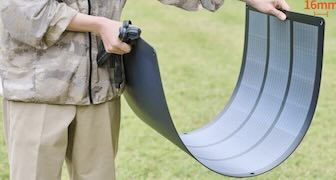TOKYO, Jul 08 (The Diplomat) - The Kishida administration last month announced its new hydrogen strategy, a key thrust in efforts to achieve decarbonization, a stable energy supply and economic growth.
The Kishida administration has promoted the establishment of international hydrogen supply chains in cooperation with countries in the Indo-Pacific, Europe, and the Middle East. Both the public and private sectors in Japan have already developed partnerships with countries such as Australia and the United Arab Emirates. In particular, Australia has been regarded as one of the most important hydrogen energy partners for Japan as demonstrated in the successful project for the world’s first liquefied hydrogen transportation vessel, the Suiso Frontier.
As mentioned by Chief Cabinet Secretary Matsuno Hirokazu at a cabinet meeting on June 6, the Japanese government considers hydrogen to be “an industrial sector that can make a triple achievement of decarbonization, stable energy supply and economic growth in one shot.” On the same day, the Kishida administration announced Japan’s new hydrogen strategy, its first in six years.
Previously, the Abe administration formulated the country’s first-ever national hydrogen strategy (the Basic Hydrogen Strategy) in December 2017. It stimulated the creation of energy policies in other countries; Australia, the European Union, Canada, Chile, France, Germany, Hungary, the Netherlands, Norway, Portugal, South Korea, and Spain all formulated their own hydrogen strategies after Japan.
At the same time however, there was negative feedback and criticism on the Abe administration’s hydrogen strategy. For example, the Renewable Energy Institute (REI) based in Tokyo harshly criticized the 2017 hydrogen strategy, pointing out that it prioritized fossil-fuel based gray or blue hydrogen. REI argued that the feasibility of establishing a so-called hydrogen society is unattainable in reality, calling the government’s vision a “fantasy.” The REI moreover contended that the government’s strategy on fuel cell vehicles (FCVs) was clearly a “complete failure,” calling for fundamental revision of the 2017 hydrogen strategy. ...continue reading















